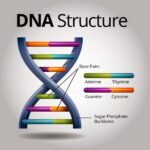Unlocking the secrets held within your deoxyribonucleic acid (DNA) through analysis offers a cornucopia of information. This article delves into the multifaceted insights gleaned from such an endeavor, providing a comprehensive overview of what you can expect to uncover about yourself.
Ancestry and Ethnicity Estimation: Tracing Your Lineage
Perhaps the most widely recognized application of DNA analysis lies in ancestry determination. DNA testing services employ sophisticated algorithms to compare your genetic data against reference populations from around the globe. The result is a detailed breakdown of your ethnic origins, often expressed as percentages from various geographical regions. These estimations can reveal surprising ancestral connections, shattering pre-conceived notions about your family history. Moreover, some tests provide haplogroup assignments, tracing your maternal and paternal lines back tens of thousands of years to specific migratory events in human history. This permits an understanding of the deep historical roots that shaped your genetic makeup. These ancestral narratives, woven from the fabric of your DNA, provide a profound connection to the past.
Health Predisposition and Genetic Risk Assessment: Decoding Your Health Blueprint
Beyond ancestry, DNA analysis extends to the realm of health, providing valuable insights into your genetic predisposition to various diseases. Genetic testing can identify single nucleotide polymorphisms (SNPs) – variations in your DNA sequence – that are associated with an increased risk of developing conditions such as type 2 diabetes, Alzheimer’s disease, cardiovascular ailments, and certain types of cancer. The presence of specific SNPs does not guarantee disease onset, but rather indicates an elevated likelihood. It is crucial to understand the probabilistic nature of these results. Armed with this knowledge, individuals can adopt proactive lifestyle changes, such as dietary modifications, increased physical activity, and regular screenings, to mitigate their risk. Pharmacogenomics, a subfield of genetic testing, predicts how your body will respond to specific medications based on your genetic profile. This can optimize treatment efficacy and minimize adverse drug reactions, ushering in an era of personalized medicine. It is important to consult with a healthcare professional to interpret these findings and develop a comprehensive health management plan.
Traits and Characteristics: Unveiling Your Inherent Attributes
DNA analysis can also shed light on a multitude of physical and behavioral traits. These include eye color, hair color, skin pigmentation, and even certain personality traits. While the genetic basis of complex behavioral traits is often multifactorial and influenced by environmental factors, DNA analysis can provide clues about your inherent predispositions. For instance, some genes are associated with a preference for certain tastes, such as bitterness or sweetness, while others influence your circadian rhythm, determining whether you are a “morning lark” or a “night owl.” Genetic insights into traits can contribute to a better understanding of your unique characteristics, fostering self-awareness and acceptance.
Nutrigenomics: Tailoring Your Diet to Your Genes
The burgeoning field of nutrigenomics explores the interaction between your genes and your diet. DNA analysis can identify genetic variations that influence your nutrient metabolism and your response to different foods. For example, some individuals possess genes that make them more sensitive to sodium, increasing their risk of hypertension with high salt intake. Others may have difficulty metabolizing lactose, leading to digestive discomfort after consuming dairy products. By understanding your nutrigenomic profile, you can tailor your diet to optimize your health and well-being. This personalized approach to nutrition can enhance nutrient absorption, improve energy levels, and reduce the risk of diet-related diseases. It represents a paradigm shift from generic dietary guidelines to individualized recommendations based on your genetic blueprint.
Carrier Status: Assessing Reproductive Risks
For individuals planning to start a family, carrier screening is a valuable application of DNA analysis. Carrier screening identifies whether you carry genes for recessive genetic disorders, such as cystic fibrosis, spinal muscular atrophy, and sickle cell anemia. Individuals who are carriers typically do not exhibit symptoms of the disease themselves but can pass the gene on to their offspring. If both parents are carriers for the same recessive gene, there is a 25% chance that their child will inherit the disorder. Carrier screening allows couples to make informed decisions about their reproductive options, such as in vitro fertilization (IVF) with preimplantation genetic diagnosis (PGD) or adoption. It empowers individuals to minimize the risk of passing on genetic diseases to future generations. The ability to predict and mitigate potential reproductive risks is a testament to the transformative power of DNA analysis.
Response to Exercise: Optimizing Your Fitness Regime
Genetic variations can influence your body’s response to different types of exercise. Some individuals may be genetically predisposed to excel in endurance sports, while others may be better suited for strength training. DNA analysis can identify genes that influence muscle fiber composition, oxygen uptake, and recovery time. By understanding your genetic predisposition to different forms of exercise, you can optimize your fitness regime to maximize your results. This personalized approach to exercise can enhance athletic performance, reduce the risk of injury, and improve overall fitness levels. It marks a departure from generic workout plans to individualized training programs based on your genetic blueprint. This is a new way to approach fitness.
Pharmacokinetics: Optimizing Drug Dosage
Pharmacokinetics, the study of how drugs move through the body, is heavily influenced by genetics. DNA analysis can unveil variations in genes that encode for drug-metabolizing enzymes. These enzymes are responsible for breaking down and eliminating drugs from the body. Variations in these genes can affect the rate at which drugs are metabolized, leading to either increased or decreased drug levels in the bloodstream. For some pharmaceuticals, this can drastically influence the effectiveness of the medication. By understanding your pharmacokinetic profile, healthcare providers can tailor drug dosages to optimize treatment efficacy and minimize the risk of adverse drug reactions. This personalized approach to medication management can improve patient outcomes and reduce healthcare costs. This could be a new norm in healthcare.
In conclusion, DNA analysis unlocks a wealth of information about ancestry, health risks, traits, and more. While not a crystal ball, it provides valuable insights that can empower you to make informed decisions about your health, lifestyle, and future. Always consult with healthcare professionals to interpret your results and develop a personalized plan based on your unique genetic profile. This personalized approach offers a chance to unlock a better future.










Leave a Comment